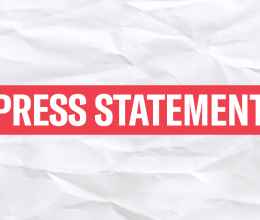To Chairman Young, Vice Chair Bird, Ranking Member Miller, and members of the House Higher Education Committee, thank you for this opportunity to provide opponent testimony on Substitute House Bill 151.
To be clear, the ACLU of Ohio is and remains stalwart defenders of free speech and intellectual diversity on Ohio’s campuses. We are grateful HB 151 was recently amended so its passage will no longer shut down hundreds of student organizations, end single sex dormitory rooms, suspend all state funding to all allegedly non-compliant private schools with zero investigation or due process, and a litany of other problems in the original version of HB 151, as detailed in the summary and analysis we recently sent to committee members.
However, we believe Substitute HB 151 still creates far more problems than it allegedly solves, contains contradictory language sure to confuse all involved, and seeks to legislate concepts and practices outside the reach of this or any state legislative body. Briefly:
SPEECH REQUIREMENTS AND RESTRICTIONS
HB 151 requires universities and colleges to include in their mission a series of statements and declarations. Included among them are:
The institution declares that its duty is to ensure that, within or outside the classroom, the institution shall not require, favor, disfavor, or prohibit speech or lawful assembly. (Lines #732-734)
On its surface, such a provision may sound good to free speech defenders. However, it totally ignores numerous nuances of the First Amendment on campus. It says nothing about “reasonable time, place, and manner” restrictions that, for example, ensure students do not hold a 500-person protest in their dormitory room or on the football field. Or protects students against ongoing, threatening speech expressing animus, violence, or anything else that creates an unsafe environment for students based on their race, sex, religion, or other factors. Or distinguishes between lawful speech and unlawful. Or any number of numerous other examples.
Another section of HB 151 explains students (among others) will be punished for interfering with the “intellectual diversity rights” of another student:
Each state institution of higher education shall implement a range of disciplinary sanctions for any administrator, faculty member, staff, or student who interferes with the intellectual diversity rights, prescribed under section 3345.0217 of the Revised Code, of another. (Lines #901-905)
“Intellectual diversity” is defined in HB 151 as: ....multiple, divergent, and varied perspectives on an extensive range of public policy issues. (Lines #749-751)
So, let’s say an outside speaker, known for controversial views, is invited by a student group to speak on campus. Other students organize and protest against that speaker’s appearance. Perhaps they even demand that invitation be rescinded. Or protest outside the event on the relevant date. No matter what one thinks of such actions, it is protected speech under the First Amendment.
But is it prohibited under HB 151? Are those actions considered “interference,” undefined in HB 151? Would any attempt to discipline a student, or other relevant party, then ironically run afoul of the university’s aforementioned provision dedicated to favoring or not favoring speech. Again, HB 151 tries to have it both ways, but fails at both.
There are other ways this peculiar intellectual diversity mandate will cause headaches. HB 151 explains: Nothing in this section prohibits faculty or students from classroom instruction, discussion, or debate, so long as faculty members remain committed to expressing intellectual diversity and allowing intellectual diversity to be expressed. (Lines #892-895)
If faculty members are to comply with HB 151’s mandates on being “committed to expressing intellectual diversity” then they must, by necessity, include and provide in their lessons for instruction on all, or significant numbers of, alternatives and sides. Must an economics class promote capitalism, socialism, and communism as no worse or better than the other? In the name of intellectual diversity, will a history instructor have to advance pro-slavery and pro-Jewish Holocaust rationales, if and when those topics are covered? The list goes on and on, because it must. After all, HB 151 demands the fullest degree of intellectual diversity (Line #781) and if ffaculty do not comply, they can be fired.
There are other examples of these conflicts throughout HB 151. From decades of experience, we can assure you if people are unclear about what speech will or will not lead to trouble, they will self-censor or altogether stop speaking. And, in the case of HB 151 and its utterly confusing mandates, stop teaching certain subjects.
In its zeal to reportedly protect speech and free thinking, otherwise laudatory goals, HB 151 severely overshoots and will surely cause chaos and confusion among administrators, faculty, staff, and students regarding what is permitted and what is not.
DIVERSTY, EQUITY, AND INCLUSION
Under HB 151, diversity, equality, and inclusion is an enemy on our college campuses. Supporters claim the only thing banned is mandatory participation in DEI training and related efforts. But the very words and machinations of HB 151 counter this claim, effectively ending all of it.
The first indication is where HB 151 micromanages when and exactly how DEI efforts can proceed. HB 151 explains (emphasis mine): No state institution of higher education shall provide or require training for any administrator, teacher, staff member, or employee thatadvocates or promotes any of the following concepts....an individual, by virtue of his or her race or sex, is inherently racist, sexist, or oppressive, whether consciously or unconsciously.
A central underpinning of DEI training and communications is everyone has unconscious biases. Some of these are more harmful than others. Some can become so widespread and ingrained they become systemic, whether by design or not. Recognition of all this is key to ensuring it is minimized in the future. But HB 151 outlaws any and all suggestions people have unconscious biases, gutting all future DEI efforts, voluntary or mandatory.
Under the section (beginning with Line #743) that ends institutions of higher education’s own ability to engage in any and all messaging, actions, communications, and more because somebody somewhere may deem them “controversial,” HB 151 offers a definition of “controversial belief or policy” (emphasis mine): Any belief or policy that is the subject of political controversy, including issues such as climate policies, electoral politics, foreign policy, diversity, equity and inclusion programs, immigration policy, marriage, or abortion.
So, some parts of HB 151 now declare this bill only targets mandatory DEI efforts (with some new exceptions, added via the sub bill) while another part forbids involvement of all kinds with regard to...”diversity, equity, and inclusion programs.”
Once again, this is not an exhaustive list of such unclear, opposing language in Substitute House Bill 151. But let’s say, for the sake of this conversation, HB 151 does prevent only mandatory DEI efforts. What are the predictable results? Here are some scenarios:
Scenario A – A campus police department studies its own data which demonstrates its officers stop, search, frisk, and arrest black students far more than white ones. The numbers also show the practices are widespread, across the department. In response, the chief tries to rectify this problem, in part, by requiring mandatory DEI training. Under HB 151, that is illegal and those most responsible for the department’s systemic problems may very well continue their harm.
Scenario B – Women in a particular academic or administrative department are routinely sexually harassed by more than one supervisor or boss. It has been going on for years, across leadership. Complaints have been filed, concerns have been voiced, but not much has changed. Finally, new leadership emerges and employees are ordered to a one-day training to hopefully change the ongoing, ingrained culture. Again, not under HB 151.
Scenario C – University administrators compare their college to others and discover students with physical disabilities, such as those involving mobility or hearing, choose other universities to attend in numbers far greater than their own, for many years. They decide to have relevant staff engage in DEI efforts to see what problems and perceptions can be internally addressed. Maybe it’s the physical layout of campus, or the accessibility of buildings, or substandard campus transportation. Or all three. Or more. Maybe it’s marketing, maybe it’s reputation, no one can be sure at this point.
Normally, requiring people to get together so discussions can be had, things can be figured out, and changes made would be seen as a benefit, a plus, a step in the right direction. This is diversity, equity, and inclusion in action.
But HB 151 is hostile to such ideas to the point of banning them. In case HB 151 is not being crystal clear with its intentions, it further bans university actions on “specified concepts” such as allyship, diversity, social justice, sustainability, systemic racism, gender identity, or inclusion. (Lines #752-754, 795-797).
So, is HB 151 limited to only preventing mandatory DEI trainings, or is there a whole lot more going on with this subject and these concepts than has been previously voiced? HB 151’s own language on restrictions and bans reveals how widespread its aim is, far beyond what has been discussed here or in Senate Bill 83 hearings.
Members of this committee, if you are looking for a neat, clean bill that upholds and promotes free speech on Ohio’s campuses, this is not it. This is the opposite – confusing, contradictory, far too specific in parts, far too vague and broad in others. For these reasons and more, the ACLU of Ohio urges this committee’s rejection of Substitute House Bill 151.







